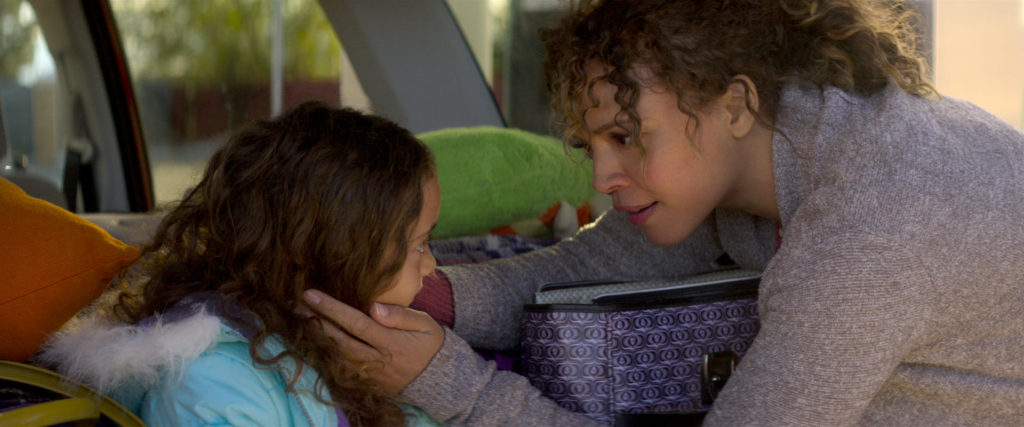
Netflix original film Rattlesnake – starring Carmen Ejogo (Fantastic Beasts: The Crimes of Grindelwald), Apollonia Pratt, Theo Rossi (Sons of Anarchy, Marvel’s Luke Cage) and more – is now streaming, and to celebrate its release, we caught up with writer and director, Perth filmmaker Zak Hilditch, to get to its “dark and gritty” core.
How would you describe Rattlesnake to someone?
Rattlesnake is a psychological thriller about a mother making an impossible decision after her daughter is bitten by a rattlesnake in the middle of Texas.
Where did the inspiration for the film come from?
I had the idea and initial setup for two years in my head and never knew what to do with it. Then, when our firstborn child was almost due, it all just clicked. I knew I needed to get it down on paper before my brain turned to mush. The urgency and immediacy really translated to the page and helped with my process in writing the film. I really relied on that ticking clock element, which I think is very apparent in the film. The film is also inspired by my love of Stephen King and the original Twilight Zone series.
It deals with some huge moral dilemmas – what interested you about that avenue?
I really love dark and gritty films about characters stuck in moral quandaries. I also wanted to subvert the expectations of the audience and keep them guessing on how it will end.
You’ve worked across horror and thriller with 1922 and These Final Hours – what is it about those genres that appeals to you?
I grew up on tons of horror films as a child and The Twilight Zone. These helped shape and inform my early TV and cinema watching life. Now I am finding a nice lane where I can put my own personal spin on ordinary people in extraordinary situations in genre settings. It has been really fun exploring the human condition when the chips are down.
How would you compare Rattlesnake to 1922 and These Final Hours?
Rattlesnake actually shares a lot with both of these films. In These Final Hours, there is an ultimate ticking clock and parent/child scenario unfolding which are elements in Rattlesnake. It is also a great example of ordinary people in extraordinary situations. 1922 is based on a novella by Stephen King and Rattlesnake is heavily inspired by Stephen King. You can see a lot of King’s DNA running throughout it.
How do you think you’ve developed as a filmmaker since 1922?
I have been further honing my craft by exploring singular points of view in films and this is no different. This is the kind of film I love watching, where you are completely stuck in a character’s shoes and you watch them deal with impossible situations. These Final Hours and 1922 definitely were both singular points of view, where you locked in the psyche of the main character. This time I got to do it with a female protagonist, the last two were male protagonists. Now as a parent, I am creating a story about a mother protecting her daughter so it was a personal tale in many ways. There is that primal element of wanting to protect your child that I think any parent can relate to.
Rattlesnake is your second Netflix film – how do you think streaming services are changing the industry? And where do you see it going from here?
It is just amazing how many eyeballs you get on your film through streaming services and Netflix started it all. The whole theatrical window has changed so much and there are so many great movies available on streaming services. Netflix is a great studio to work with because they are very supportive and really trust in your vision as a filmmaker.
Rattlesnake is streaming on Netflix now.









